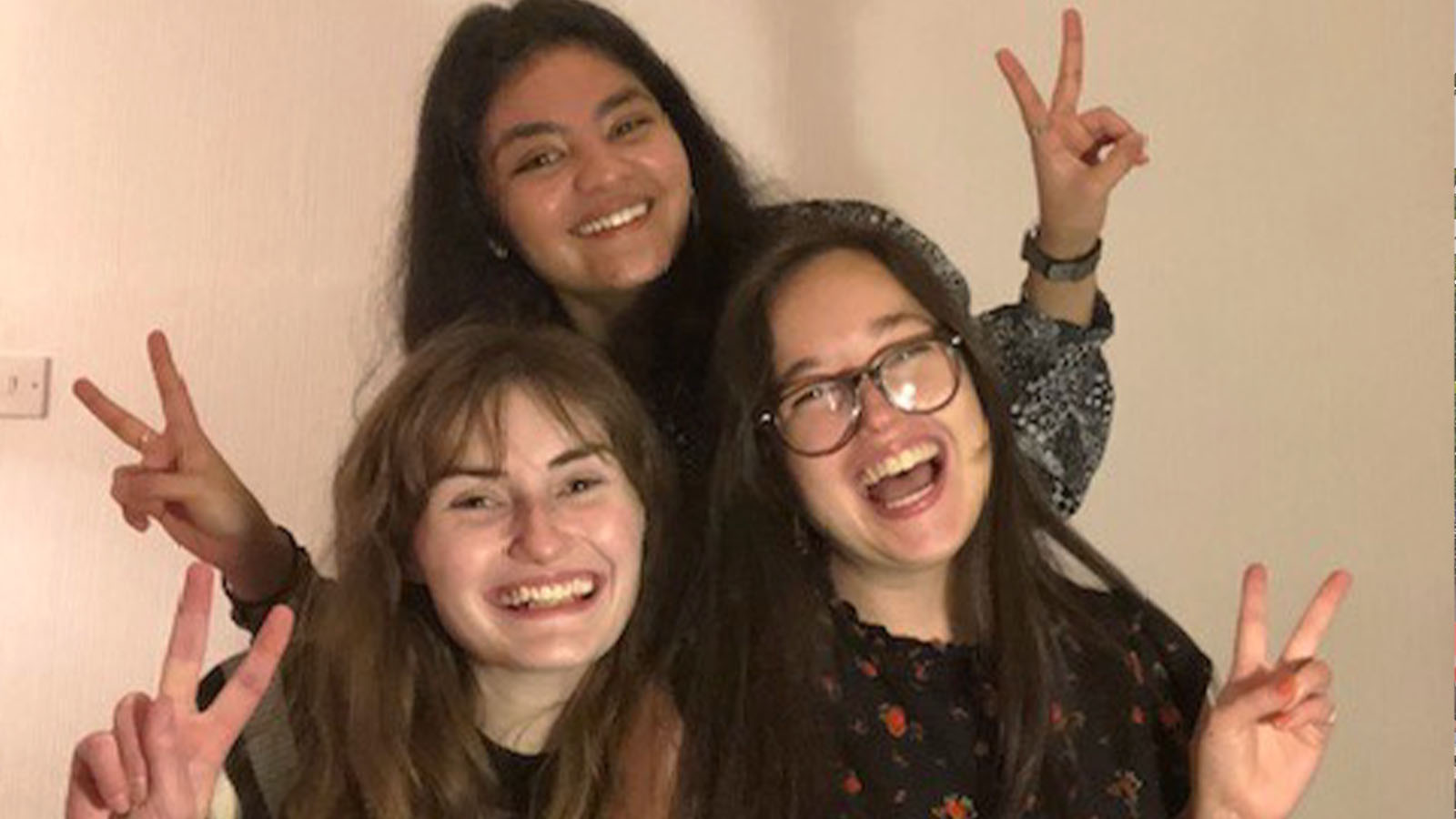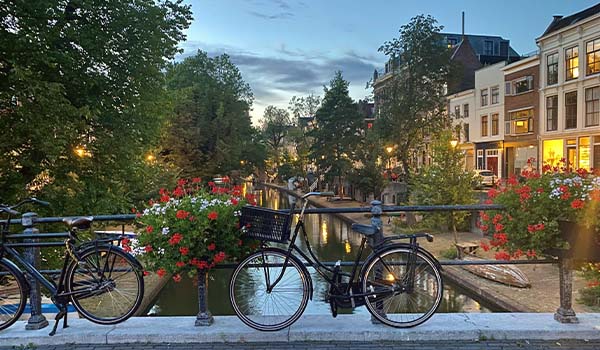Hi, I’m Maria, a third-year English Literature and Creative Writing student. I’m currently completing my placement year in Utrecht, the Netherlands. After going through the placement process last year, I’m here to give you all my tips and advice! You can follow my placement adventure on words of the wanderer on Instagram.
When my two best friends and I made a pact to get work placements during our third year, I didn’t really think much about it. It’ll be a great thing to do, we all enthused, sitting in the living room of our second-year house. Developing new skills; working in a professional environment, doing something we love. What could be better?
Maria's placement year - what is a placement year?
by Maria Clark

Maria and her friends
For those of you who don’t know, Lancaster offers an incredible Placement Year degree scheme. This means, for most degrees, rather than doing three consecutive years of study and then graduating, you complete the first two years of your degree and then spend a year working in an industry environment. After that – older, wiser, holding experiences you’d have never imagined – you return to Lancaster for your fourth and final year.
How do I enrol on a Placement Year degree?
Many degrees offer a placement year scheme in the format I’ve described above. You can find these on the course pages, in the list alongside the normal degree. The degree title will look something like this: English Literature, Creative Writing and Practice (Placement Year).
If you’re thinking about coming to Lancaster and want to know more about the placement degrees, I’d recommend heading to the specific Career Talks on our Open Days, and checking out the faculties’ Placements and Internships webpages.
If you’ve started uni and you’re only just reading this now, don’t panic. There’s a small window during your first term where you can switch onto a placement year degree scheme. That’s what I did after I decided not to apply for Study Abroad.
Some degrees offer in-built industry placements or term placements instead of a whole year. It’s really important to see what’s available to you before you apply! For example, my degree does offer a term-long placement in the third year, which others might choose if they didn’t want to take an entire year out.
What happens next?
So, you’ve enrolled on a placement year degree and are wondering what actually happens next. Well, don’t worry. Each faculty has a dedicated placement team and module to introduce you to the scheme and help you along the way.
You’re introduced to the idea of a placement towards the end of the first year, where you’ll be encouraged to start thinking about what exactly you might want to do. Again, this will vary depending on your degree and department, but often there’s great flexibility with finding a placement that suits your interests and skills. As long as it is an official, reputable placement that allows you to develop skills relevant to your degree, it’s likely to be approved by your placement adviser.
How do I decide what I want to do during my placement year?
Sometimes, having so much freedom can be overwhelming. If you’re really not sure where to start looking with placements, think about potential careers you might be interested in pursuing. Is there a particular job you’d like to try, but not sure if you’d like it? Your placement year is the perfect time to experiment with this. Or, do you have a really particular set of skills or interests that you want to develop?
Whoever you are, one thing’s for certain – you’re not on your own. You’ll meet with your placement adviser several times once you’re enrolled on the module, where you’ll discuss your key interests, skills and passions. The team will be able to advise you to look in certain directions or to consider researching different career paths. As well as this, there are many career tools made available to you during this time, such as quizzes to identify potential job roles. Essentially, it’s up to you the direction you take, but you have lots of help to get there!
For example, if you’re studying business and want to pursue a particular section of the industry, you can focus on placements and internships in these areas, such as accounting, consulting, management and HR. Or, perhaps you’re doing an arts degree like mine, and want something creative? There are plenty of placements related to the media and creative industries too.



